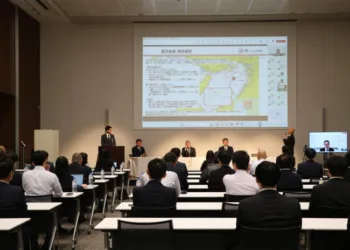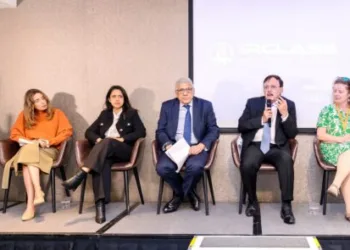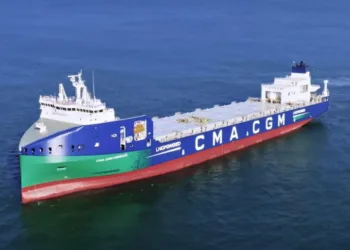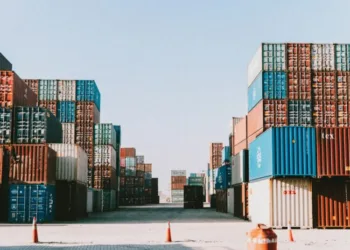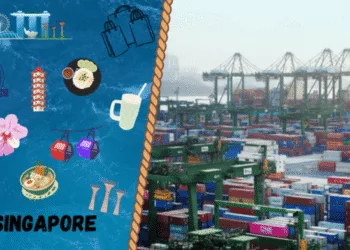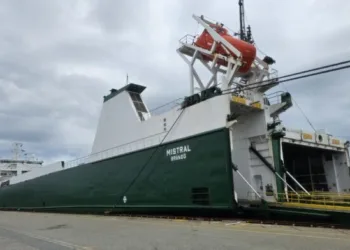Philippos Iolianou, managing director of EmissionLink, on why shipowners may pay twice to go green.
Shipping is no stranger to regulatory upheaval. But as the IMO’s net-zero targets could soon converge with FuelEU, ship owners and operators are staring down a reality that feels like decarbonisation déjà vu, paying not once, but twice, to comply with overlapping regulatory requirements.
On paper, both organisations aim for the same goal to decarbonise shipping. The problem is they arrive with different timelines, enforcement mechanisms, and expectations. In practice, this means shipowners are being asked to set up parallel reporting systems, build up internal compliance capacity, and invest in new fuels and technologies, often before the infrastructure or supply chains are ready or a clear understanding of which is the best fuel to use. And of course all of this comes at an additional cost.
Take double reporting. For at least the first two years, owners will need to collect and verify essentially the same emissions data in different formats. Why? There’s no clear justification other than that regulators are moving at different speeds. If the IMO system launches on January 1, 2027, as planned, and the FuelEU is already running, the industry will be stuck in an administrative limbo through 2027 and probably into 2028. That means duplicate monitoring, duplicate verification, duplicate compliance burdens and ultimately duplicate penalties if something falls through the cracks.
This inefficiency isn’t just a nuisance, it’s an extra cost. Every dollar spent on parallel systems gets passed on to charterers, cargo owners, and eventually consumers. And for what? So the same CO₂ emissions can be reported twice and priced differently depending on who you ask. Instead of alignment, we have confusion.
Of course, decarbonisation itself is essential. But we have to be honest about the operational challenges of transitioning the global fleet. The majority of vessels today will still be trading 10–15 years from now. They won’t be scrapped or retrofitted overnight. Converting an engine to run on gas, methanol or ammonia costs millions, and even then, the fuel often isn’t always available at the chosen port. If the entire supply chain isn’t mature from the fuel producers to the bunkering facilities and the certification schemes then owners risk investing in redundant technologies.
At the same time, it’s crucial that regulation doesn’t become focused exclusively on fuels. There are viable decarbonisation technologies that can cut emissions today. But when incentives and penalties are framed around fuel consumption alone, engine manufacturers and owners alike naturally prioritise dual-fuel solutions. But that doesn’t address the problem, it’s a sticking plaster which stifles the innovation required in this sector to find a solution that is so desperately needed.
For all these reasons, regulators should do everything possible to harmonise reporting and compliance frameworks in the short term. If the IMO and EU can agree to mutual recognition of verified emissions data, we could avoid duplicate reporting during the transitional years. Better yet, regulators could develop an integrated system so owners submit once and comply with both. This would create a bit of breathing space to develop the real decarbonisation strategy shipping requires.
It’s also time for ship owners to start re-thinking their business models. Competing on price alone is not sustainable in a world focused on decarbonisation. Owners and managers who can offer decarbonisation services, from technical support for retrofits, sustainability reporting, and fuel strategy advisory services, like EmissionLink, should stand out by having a more advanced service. Instead of seeing adherence to regulation as an unnecessary cost, forward-looking companies should be using it to differentiate themselves from their competitors.
But to do that, we need clarity, not confusion. We need realistic timelines, not overlapping deadlines. And we need regulators to recognise the same data doesn’t need to be collected and verified twice. Decarbonisation is difficult enough without making it harder through the complexities of two regulatory systems at the same time.
If the industry fails to co-ordinate now, we’ll keep repeating this cycle. New rules, frantic compliance, extra cost, and no time to plan strategically. That’s why the transitional period must be as smooth as possible, and why we should avoid making shipowners pay twice for something which could actively hinder the path towards decarbonisation.




